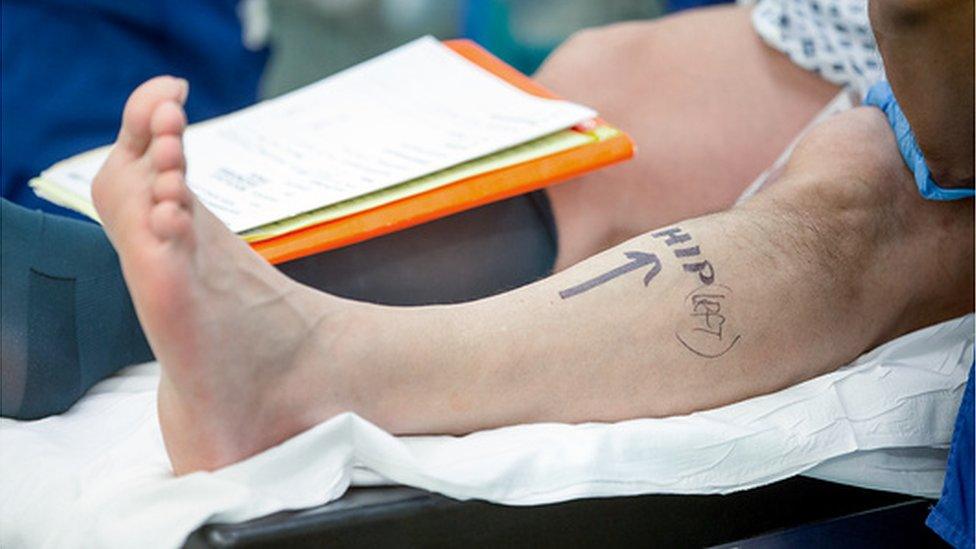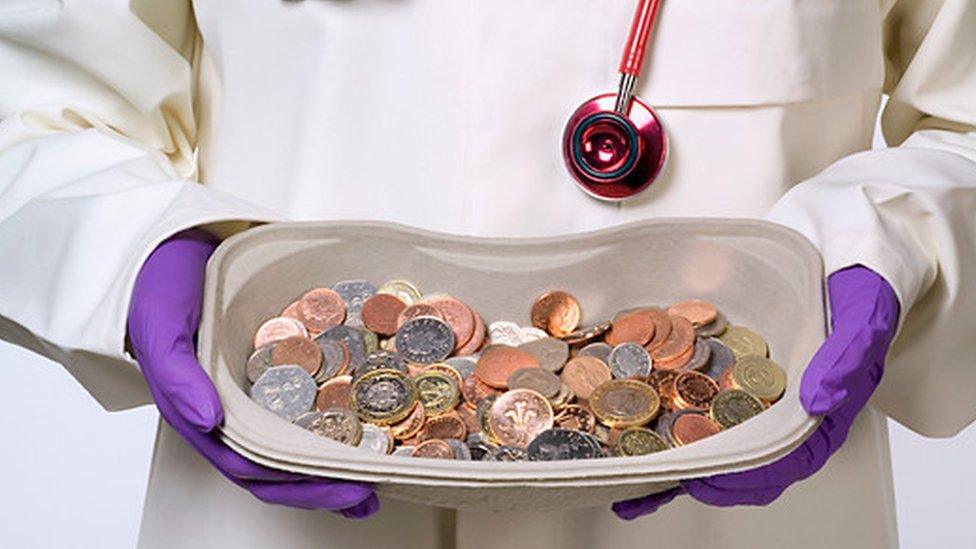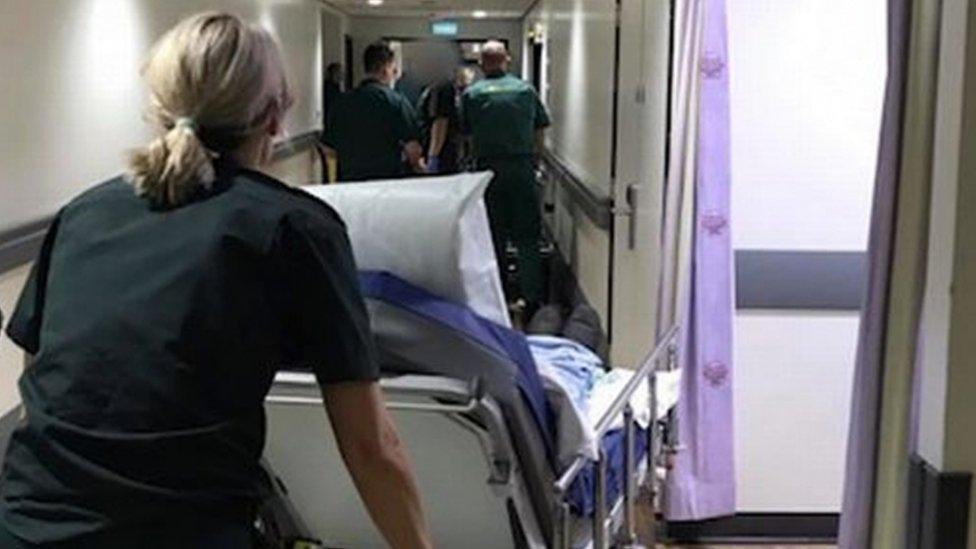Could the NHS save money by getting it right first time?
- Published

Why can't all hospitals carry out hip replacements the same way to benefit patients?
With the NHS strapped for cash, there are frequent demands for more money. But could hospitals make better use of resources?
That's the question which NHS chiefs in England are pondering at a time when funding increases are not keeping up with patient demand.
One leading surgeon even says the NHS doesn't need more money - and can find what it needs simply by becoming more efficient.
At the heart of the latest attempts to make the money go further is another typical piece of NHS jargon - "Getting It Right First Time" or Girft. It may sound obscure, but it is now a buzzword around Whitehall and at public policy think tanks.
Ministers and health service leaders are setting great store by this project and hoping it can free up more money for the front line at a time of mounting pressure. A new report from the Girft team, external has come up with annual potential savings for NHS in England of £268m.
Tackling differences
Getting It Right First Time is the brainchild of the leading orthopaedic surgeon Prof Tim Briggs. A former rugby player and forceful character, Prof Briggs has been on a personal mission to knock aside bureaucratic barriers and tackle major variations in surgical standards and techniques at different hospitals.
In 2012, he coined the Getting It Right First Time title for his own report on orthopaedic surgery.
He discovered a wide range of different outcomes for patients after hip and knee replacements at selected hospitals. The infection rates for patients recovering from these operations, for example, varied from 0.2% to 4.5% and at one hospital, for a short time, it was as high as 15%.
Treating these infections and having, where necessary, to re-do a replacement operation can be very costly for the NHS. If those infection rates could all be reduced to the 0.2% achieved by the best-performing hospitals, argued Briggs, up to £300m a year could be saved and patients would be better served.

The report indicates there are savings to be made in the way surgery is organised
Backed by NHS England, Prof Briggs produced a report on orthopaedic services at a wider range of hospitals in 2015. Last year, his analysis was extended to cover a range of specialist medical areas, including cardiology, paediatrics and urology, with the aim of eliminating variations in procedures and outcomes.
By this time, encouraged by ministers, Briggs was working at the top of the NHS hierarchy and heading his own team with a brief to standardise practices and identify savings.
The latest report covers general surgery in England. The most eye-catching finding is the number of emergency admissions for surgery at hospitals which result in a decision that no operation is actually required.
If consultants are involved in the triage process, argues the report, more patients can be treated without needing a hospital bed and there can be a 30% reduction in admissions for emergency surgery. That could result in a total annual saving of £108m.
The report's other recommendations include reducing the length of stay for patients recovering from appendix surgery from the three-and-a-half-day average to the two days experienced at some hospitals. This would free up more beds for patients and cut costs by £8.5m annually. The total cost-savings identified this way in general surgery come to £268m.
'Significant waste'
Prof Briggs, who doesn't mince his words, came up with a strong conclusion in an interview with the Times: "I do not think at the moment we deserve more money until we put our house in order and we actually make the changes that will improve the quality of care."
He went on to say there was "significant waste" at hospitals he had visited in all parts of the UK and that the NHS could do a "lot more work" with the money it already had.
Eyebrows were no doubt raised at NHS England when Prof Briggs's comments were published. His message is rather different from the standard NHS view that even after efficiency savings, more money will be needed from central government.
The general direction of travel for Girft, however, is wholeheartedly supported by Simon Stevens, head of NHS England, as it is by Health Secretary Jeremy Hunt.
NHS Providers, representing hospital trusts in England, sounded a note of caution. It argues that the NHS is already working on reducing variations in care costs. The organisation believes that the total Girft savings might be no more than £2bn annually by 2020 when the funding gap is arguably 10 times that.
Hopes are high in government that Getting It Right First Time will unlock more cash for the NHS when it is badly needed.
But talking about possible savings is one thing. Delivering them is another. One thing is certain - we will hear a lot more about Girft and Tim Briggs in the year ahead.
- Published10 July 2017
- Published10 January 2017

- Published20 February 2017
